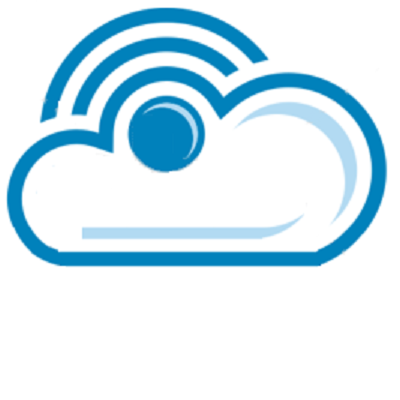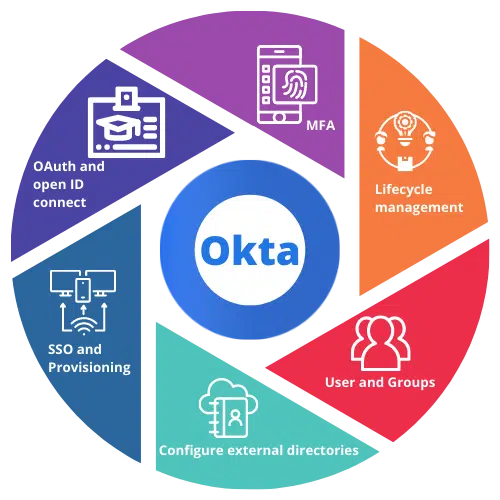Okta Basics: Simplifying Identity Management in the Cloud
 Cloud Tuned
Cloud Tuned
Okta Basics: Simplifying Identity Management in the Cloud
In today's digital landscape, managing user identities and access across various applications and services can be a complex challenge for organizations. This is where Identity as a Service (IDaaS) platforms like Okta come into play, offering a comprehensive solution to streamline identity management processes. In this article, we'll delve into what Okta is, how it works, its use cases, competitors, and other essential aspects.
What is Okta?
Okta is a leading Identity as a Service (IDaaS) provider that offers cloud-based identity and access management solutions for enterprises. Founded in 2009, Okta's platform provides a centralized hub for managing user authentication, authorization, and lifecycle management across cloud, mobile, and on-premises applications.
Okta is a standards-compliant OAuth 2.0 authorization server and a certified OpenID Connect provider . OpenID Connect extends OAuth 2.0. The OAuth 2.0 protocol provides API security via scoped access tokens, and OpenID Connect provides user authentication and single sign-on (SSO) functionality.
How Does Okta Work?
Okta operates on a cloud-native architecture, leveraging secure APIs and protocols to integrate seamlessly with various applications and directories. Here's an overview of how Okta works:
User Authentication: Okta acts as an identity provider, offering Single Sign-On (SSO) capabilities that allow users to access multiple applications with a single set of credentials. Users authenticate through Okta's platform, which then securely communicates with the target applications to grant access.
Authorization and Access Control: Okta enables administrators to define access policies and permissions based on user roles, groups, and attributes. This ensures that users have appropriate access to resources based on their roles within the organization.
Lifecycle Management: Okta automates user provisioning, deprovisioning, and account updates across connected applications. This streamlines user lifecycle management processes and ensures that access privileges are granted and revoked in a timely manner.
Multi-Factor Authentication (MFA): Okta supports MFA, adding an extra layer of security to user authentication processes. Users may be required to verify their identity using methods such as SMS codes, push notifications, or biometric authentication.
Integration Ecosystem: Okta offers extensive integrations with a wide range of applications, including cloud-based services, on-premises applications, and custom-built solutions. These integrations enable seamless interoperability and allow organizations to extend identity management capabilities across their entire technology stack.
Use Cases for Okta
Okta's versatile platform caters to various use cases across industries and organizational sizes. Some common use cases include:
Enterprise Single Sign-On (SSO): Okta simplifies access to multiple applications for employees, boosting productivity and user experience while maintaining security.
Customer Identity and Access Management (CIAM): Okta enables organizations to provide secure and seamless access to customer-facing applications and services, enhancing user engagement and loyalty.
Partner and Supplier Access: Okta facilitates secure access for partners, suppliers, and contractors, ensuring controlled and auditable access to sensitive resources.
Workforce Identity and Lifecycle Management: Okta automates user provisioning, deprovisioning, and access governance processes, reducing administrative overhead and enhancing security.
API Access Management: Okta's API Access Management capabilities enable organizations to secure APIs and microservices, controlling access and enforcing policies for API consumers.
Competitors
While Okta is a prominent player in the identity management space, several competitors offer similar solutions. Some notable competitors of Okta include:
Microsoft Azure Active Directory (Azure AD): Microsoft's cloud-based identity and access management solution, tightly integrated with the Azure ecosystem.
Ping Identity: Provides identity management solutions for enterprises, offering capabilities similar to Okta's platform.
OneLogin: Offers cloud-based identity management solutions, including SSO, MFA, and user lifecycle management.
ForgeRock: Provides identity and access management solutions for enterprises, emphasizing scalability and flexibility.
Conclusion
In an increasingly digital and interconnected world, effective identity and access management are critical for ensuring security, compliance, and user productivity. Okta's comprehensive IDaaS platform addresses these needs by offering centralized authentication, authorization, and lifecycle management capabilities. With its robust features, seamless integrations, and focus on security, Okta continues to be a preferred choice for organizations seeking to streamline their identity management processes in the cloud.
Subscribe to my newsletter
Read articles from Cloud Tuned directly inside your inbox. Subscribe to the newsletter, and don't miss out.
Written by
